
High-flying law students see it as the pinnacle of a legal career. And it’s easy to see why: getting a job at one of Bay Street’s top firms means you’ll work on some of the most high-stakes corporate files in the country, and pocket a big salary to boot. So what’s it really like? To find out, our news editor, Daniel Fish, sat down with seven female associates at the Seven Sister firms to get the goods on everything from the intense work hours, to the biggest stresses of the job, to keeping up with the firm dress code.
[Ed note: Who are the Seven Sisters? Coined more than a decade ago, this moniker was supposed to represent the Toronto law firms with an iron grip on the biggest deals in corporate law. The term might have since outgrown its usefulness, but the lawyers at these firms are still considered cream-of-the-crop.]
Day-to-day life on Bay Street
Daniel: How long is your typical workday?
Kathleen: About 10 hours. But that shifts every day, depending on whether I’m on a deal, or if a client calls — which could be seven at night or six in the morning.
Daniel: So junior associates are always on call?
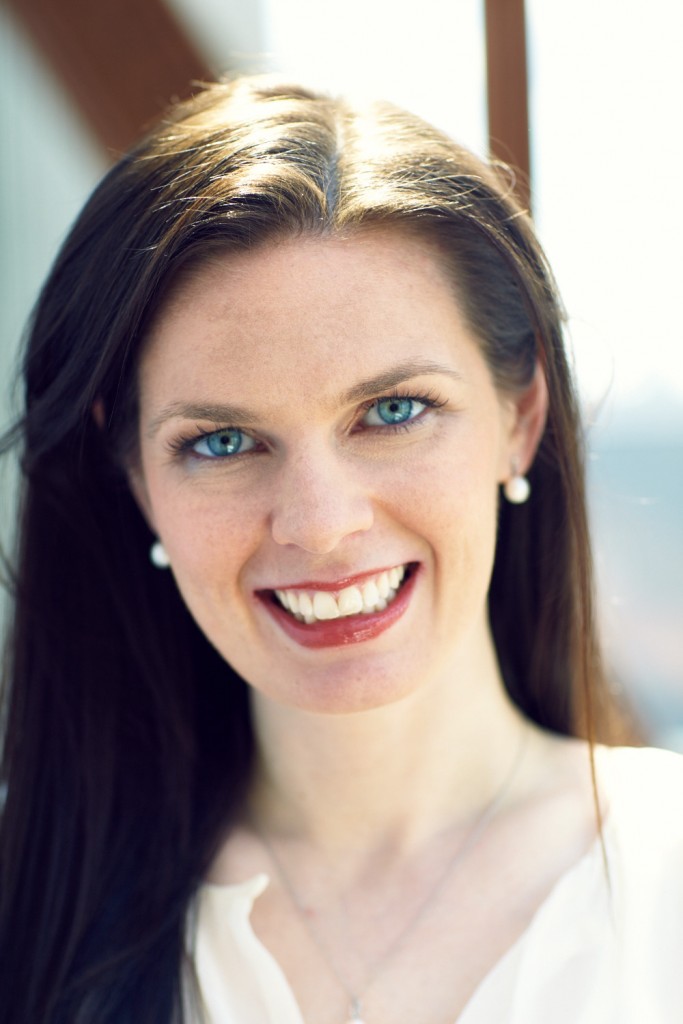
Cassandra Brown, Blakes
Year of call: 2009
Practice area: Competition and foreign investment
Average weekly work hours: 60
Hometown: Calgary, Alta.
Law school: McGill University
Law school extracurriculars: Editor of Quid Novi, VP finance for the McGill Law Students’ Society, radio host on LegalEase and orientation committee co-chair
Advice for her law-school self: Enjoy not being tethered to your BlackBerry while you can
Nooreen: Absolutely. On some days, I might be doing literally nothing until three o’clock. Then a client suddenly calls asking us to review an agreement for the next morning. Then I end up working until 11:30.
Cassandra: I don’t really divide my day by ‘work’ and ‘non work’ time, because I always have my BlackBerry with me. If I’m at a movie and a client emails me and says, ‘I need you to get on a call,’ I just walk out and dial-in. [Ed note: All seven associates use phones provided by their firms (and they got to choose: BlackBerry or iPhone). Most firms just pay for the data, but McCarthys shells out for the whole shebang, including roaming charges for lawyers on vacation.]
Katie: At the same time, I can also leave early on slow days, knowing I’ll make that time up later.
Daniel: How often do you work on weekends?
Victoria: I work about half a day every weekend. And I use that time to clear out non-urgent work: commenting on documents or reviewing agreements that aren’t urgent. This prevents my upcoming week from being crazy.
Lama: I often work on weekends. But I don’t mind: as a transactional lawyer, there are Tuesdays and Wednesdays that feel like weekends because I have virtually nothing to do.
Daniel: It sounds like the image of the Bay Street lawyer toiling into the wee hours every night is a myth.
Nooreen: I think that’s right. Before I started at Torys, my friends would always say, ‘Oh, you’re going to Bay Street. You’ll be working until three or four in the morning.’ And that just doesn’t happen.
Chantelle: I agree. I mean, I work at Davies, which has this reputation, for whatever reason, of being a firm that makes its associates work the most gruelling hours of all the big firms. But, I’ve got close friends at other firms and my hours are no different from theirs.
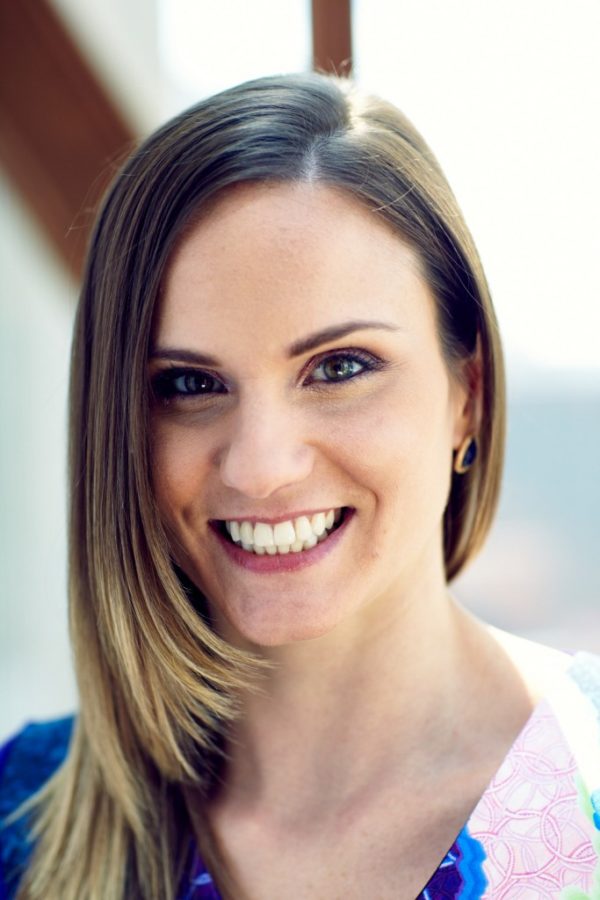
Chantelle Spagnola, Davies
Year of call: 2011
Practice area: Litigation
Average weekly work hours: 58
Hometown: Innisfil, Ont.
Law school: Osgoode Hall
Law school extracurriculars: I participated in every moot I could — Lerners Cup, Torys Cup, Baby Gale and the Concours Laskin (twice); founding member of the Métis Law Advocacy Society
Advice for her pre-law self: Pursue what you’re interested in and passionate about — this is your life, and it will be a whole lot better if you enjoy what you do for a living
[Ed note: Davies has long been nicknamed “Slavies” for its supposedly hellish hours. But when the firm decided to get in on the joke by running a “Slavies” ad in law-school newspapers, students were outraged, offended by the reference to actual slavery. Davies pulled the ad and apologized, and firm advertising has been notably tame ever since.]
Daniel: When you applied to Davies as a student, were you worried you might be working intense hours?
Chantelle: To be honest — it’s almost sick to say — it kind of enticed me, because it seemed like an additional challenge. But, in the end, it turned out to be untrue.
How to thrive at the firm
Daniel: Does law school prepare you to be a lawyer?
[Ed. note: everyone chuckles]
Katie: Not entirely. It teaches you how to research and write. But you still don’t know what it’s like to be a lawyer, day-in, day-out.
Chantelle: No knocks to the law-school curriculum, but I think one year would be enough. You need to know the underlying law, but most of what I do, I learned on the job. For instance, I didn’t take a single intellectual property course in law school, and now I’m on an enormous IP lawsuit. Did law school prepare me for this? Not in any way whatsoever.
Daniel: If law school doesn’t prepare you, how do you get up to speed once you start working?
Kathleen: More than anything, say ‘yes’ to whatever work lawyers offer you.
Nooreen: I definitely learned the most when I was thrown into files where I had no idea what was going on. I’d get documents back from partners, all marked up, and it would look like they rewrote the whole thing in the margins. But that really helped me learn.
Cassandra: I learned so much early on from having great partners revise my work. Seeing how they make it better helps me see how their minds work.
Victoria: I agree. Getting thrown into unknown situations again and again is really what helps you develop as a lawyer.
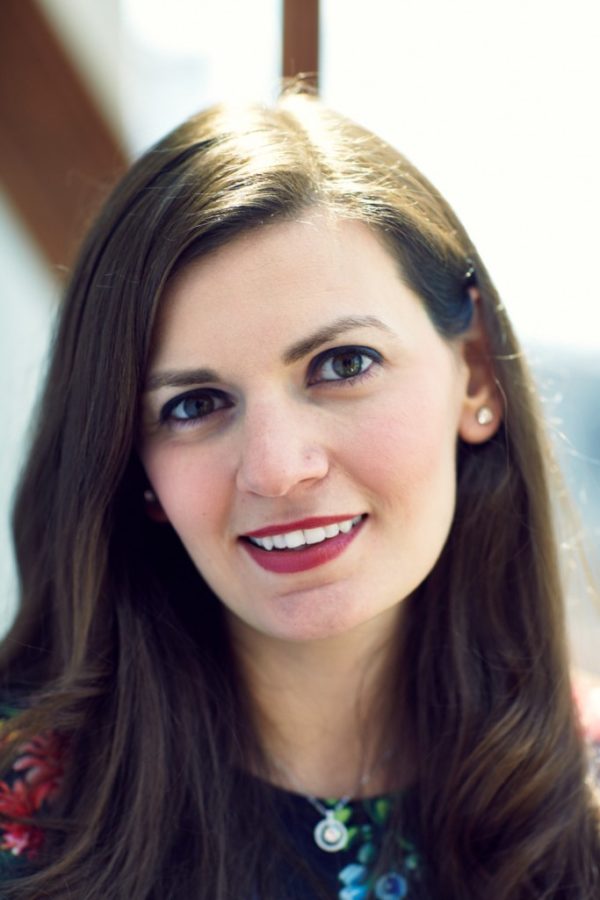
Lama Sabbagh, McCarthys
Year of call: 2013
Practice area: Corporate
Average weekly work hours: 50
Hometown: Windsor, Ont.
Law school: University of Windsor
Law school extracurriculars: VP of finance at the Students’ Law Society, project manager at a pro bono clinic, worked as a teaching assistant and on a national educational campaign on the Charter
Advice for her pre-law self: Same advice I would give myself today — don’t take on too much
Lama: A partner once told me that, as a lawyer, you should always have a knot in your stomach. That means you’re actually thinking about what you might have overlooked. If you don’t have that feeling, you’re probably making mistakes. So you need to get comfortable with always feeling a bit uncertain.
Daniel: Do any of you feel pressure to bring in clients?
Nooreen: Not on my own. But partners do rely on associates to help strengthen relationships with existing clients. I attend lots of client lunches and dinners. I also went on a trip to Edmonton to help pitch a potential client.
Victoria: I don’t feel any pressure, but I keep it in the back of my mind. One of my friends, for instance, is the COO at a mid-size company and they’re looking to change counsel. So over dinner, I said, ‘Oh, you need commercial contracts reviewed? We can set up a plan for that. I’m happy to talk further or put you in touch with partners.’
Chantelle: As a junior, it’s going to be hard to bring in clients, but you can start building your brand in the profession so it’s easier later on. Take on writing tasks or speak at conferences. That way, once you do start approaching possible clients, you’ll be more credible and more likely to succeed.
Being a woman in law
Daniel: As a woman in law, what are the unique career challenges?
Nooreen: For me, I think there aren’t any. Now, I don’t have children, so maybe that’s why. But partners treat me the same, and take me just as seriously as my male colleagues.
Daniel: Do clients always take you seriously?
Chantelle: That’s one challenge I find, especially when dealing with clients from much earlier generations. For some of them, they’ve never dealt with female lawyers. And now they’re dealing not just with female lawyers, but female lawyers who might be 40 years younger than them. There are situations where clients have thought I was an assistant to one of the partners.
Daniel: How do you handle that situation?
Chantelle: As soon as the partners find out, they go out of their way to sit down and tell the client, ‘She’s a third-year lawyer. And she’s actually done a lot of the work we’ve delivered to you.’ Some problems are above my pay grade.

Noreen Bhanji, Torys
Year of call: 2012
Practice area: Commercial real estate
Average weekly work hours: 50
Hometown: Toronto, Ont.
Law school: Osgoode Hall
Law school extracurriculars: Volunteered with the Family Law Project and the Ontario Council of Agencies Serving Immigrants
Advice for her law-school self: Don’t worry so much — being an actual lawyer is completely different than what you learn at law school, and every summer student starts out in the same position. But work hard to get the grades to get you the interviews.
Daniel: The elephant in the room is the fact that, statistically, women are far more likely to leave Bay Street than men. In private practice, women make up just 20 percent of partners. Do you notice that at your firms?
Cassandra: As an articling student, I felt like I was treated exactly the same as my male counterparts — gender was irrelevant. But the longer I stay in private practice, the more aware I am of the challenges female lawyers face.
Daniel: Can you give me an example?
Cassandra: Think about this: just yesterday, I was at a client’s office from 9 a.m. to 11 p.m. I don’t have children, but if I did, there would’ve been no time to pick them up from school. No time to help them with their homework. And yet, I need to work late nights once in a while to be the best lawyer I can be.
Daniel: Kathleen and Katie, you both have young children. How hard is it to raise them and stay on top of your career?
Kathleen: It’s difficult. This job, whether you’re in corporate or litigation, is so rewarding, but it’s a big job. And having a child — that’s a big job. So these jobs are always in conflict with each other. There are moments when I think, ‘I’m just not doing the best job at home.’ Those are really difficult times.
[Ed note: Katie has her two-year-old son in daycare, and Kathleen’s husband (a teacher) was home with their 17-month-old daughter for the summer, but they’ll have a live-out nanny start this fall.]
Katie: I’ve tried to develop a consistent routine. I leave the office at the end of the day, pick up my son from daycare and spend time with him. If I need to do any more work, I’ll log back on at 7 p.m. once he goes to bed. And it’s not uncommon for me to say to a partner, ‘I can’t take that call at 5 p.m.’ And they get it. They’ll reschedule it or say, ‘You know what, you don’t need to be on this call.’
Daniel: Are things getting better for women?
Kathleen: I do think so. When I started six years ago, these conversations were whispered in the hallways between girlfriends. And now, at Stikeman Elliott, the advancement of women is one of the three key objectives for us in the next three years. So firms are trying to make changes.
Katie: For example, when I was on maternity leave, my firm matched me with a senior partner to help me with everything from finding a moms’ group to staying connected to the firm during a time that can be isolating.
Kathleen: I know the numbers aren’t where they need to be, but we are finally making an effort to improve the situation.
Keeping your head above water
Daniel: What’s more stressful — being a law student or being a young associate?
Kathleen: Oh, being a young associate. No question.
Daniel: What’s the biggest source of stress?
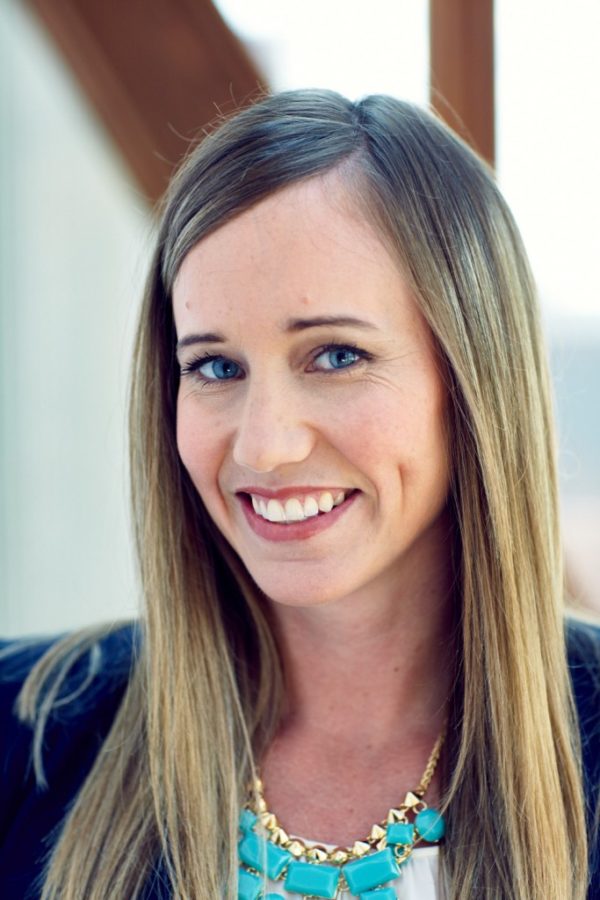
Katie Rancourt, Goodmans
Year of call: 2010
Practice area: Corporate finance, securities, mergers & acquisitions
Average weekly work hours: 45
Hometown: Aurora, Ont.
Law school: Queen’s University
Law school extracurriculars: Volunteer with Pro Bono Students Canada
Advice for her pre-law self: Avoid unnecessary stress, like subjecting yourself to post-exam banter
Chantelle: When you have so many things to do and you feel like you don’t have enough time to complete them. I sometimes look at all the work on my desk and think, ‘How will this ever get done by the end of the day?’ Yet in four years, I always have. And that knowledge is a stress reliever. I even have a Post-it note on my desk that says, ‘You can do the thing.’
Cassandra: I don’t find the workload the most stressful part. It’s taxing, but what really stresses me out is when I think I’ve made a mistake. Because if you make a mistake, you have to let a partner know. Immediately. The worst thing to do is let the problem fester or try to hide it.
Daniel: How does everyone else deal with stress?
Nooreen: I might sound like an old lady, but I take walks. There’s a nice trail behind my condo, so after work I’ll go for an hour-long walk. And I leave my phone upstairs.
Victoria: I get the most stressed when I let work take over my life. For example, I play on three softball teams. So, even if I’m swamped, I’ll try to make it to my game and return to work when it’s over. If I skip the game, I’m going to feel more down on myself.
Lama: I agree with Victoria. I aim to fit everything I need to do, both work and personal, into my entire day. For example, I always leave work around seven to have dinner at home. Then, if I need to, I’ll do work later on that evening.
Katie: Taking your vacation time is also important — both to unwind and to spend time with family or friends.
Daniel: How much vacation do you take?
Katie: I always take my full four weeks. And I’m a better lawyer when I get back.
Lama: Same here. I always take my four weeks. I just spent two weeks in Greece. And I don’t work on vacation, other than to check emails for maybe five minutes a day. I’m not going to pay money to go work remotely in Greece. That’s just not something I’m going to do.
Inside Bay Street fashion
Daniel: Do your firms have dress codes?
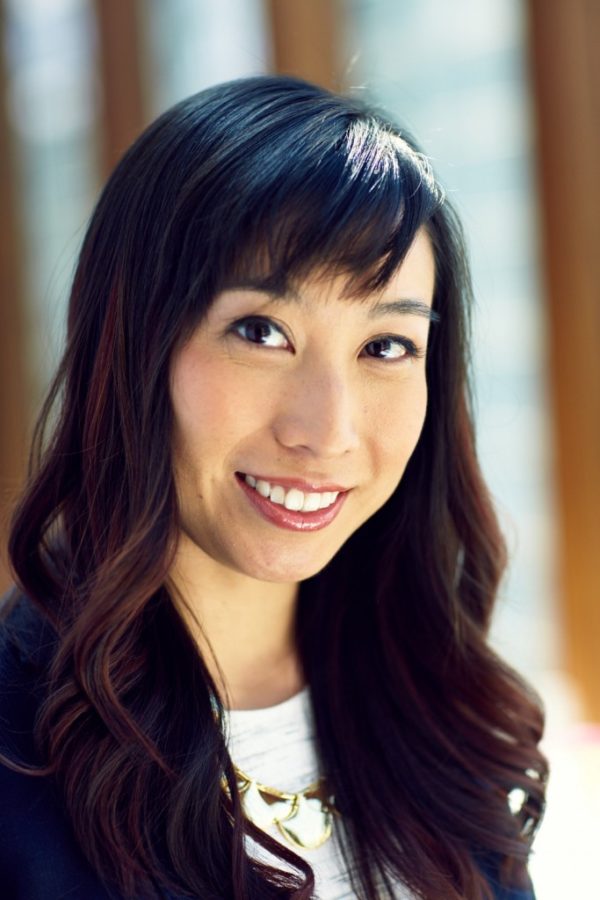
Victoria Au, Osler
Year of call: 2012
Practice area: Corporate
Average weekly work hours: 55
Hometown: Toronto, Ont.
Law school: Queen’s University
Law school extracurriculars: Chaired the Equity Committee, Alumni Relations Committee, and Health Law and Policy Association; student director of the Federation of Asian Canadian Lawyers; competed in the Harold Fox Intellectual Property Moot
Advice for her law-school self: Enjoy it! Take the time to pursue hobbies and explore different areas of the law. It will help you when deciding on your practice area. It will also be harder to find the time once you become specialized and are working full time
Nooreen: I don’t think so. Torys, for sure, doesn’t have one. It’s more common sense: if you’re going to see a client, then wear a suit or something more professional. Most of the time, though, I wear a dress. It’s easy and it’s just one item.
Cassandra: Blakes doesn’t have a formal dress code, but there are unspoken standards in different practice groups. It’s not rigid, but in my group, for instance, we don’t usually wear jeans on Friday. But in the litigation group, for example, they do.
Daniel: How come?
Cassandra: In the litigation group, some of the senior partners wear jeans. But in our group, the senior partners just don’t. So everyone takes a cue and thinks, ‘Well, if my boss isn’t wearing jeans, I’m not going to either.’ So pay attention to those sorts of conventions.
Daniel: Do you enjoy dressing up for work?
Lama: I do. I like to have fun with my wardrobe. Some people are more conservative, but I always wear colour. That’s one way I feel good about myself. And I’m crazy about shoes. I even had a shoe-closet built into my office. So for me that’s fun: I can pick out my dress in the morning and once I get to the office I get to choose what heel I’ll wear.
Daniel: Are there any obvious fashion mistakes to avoid?
Chantelle: Anything provocative: nothing too tight or short or fish-netty.
Daniel: For men?
Chantelle: Don’t look crumple-y. Even if two men have the same suit, if one looks like it came out of a gym bag, then that person automatically looks less put together. Just buy a steamer: the best investment I ever made was a $30 steamer from Walmart. Then you look better in seven minutes.
Is Bay Street right for you?
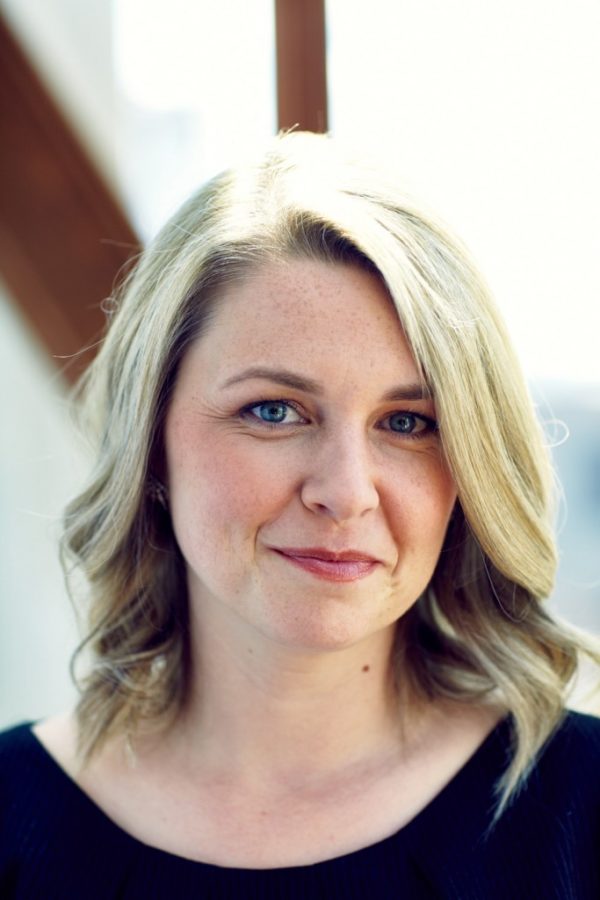
Kathleen Chevalier, Stikemans
Year of call: 2012
Practice area: Labour & employment
Average weekly work hours: There is no average!
Hometown: Windsor, Ont.
Law school: Windsor University
Law school extracurriculars: The Law Review, worked as a constitutional law teaching assistant, volunteered at an elementary school
Advice for her pre-law self: Enjoy the ride — don’t be so focused on the end resultChantelle: They understand the first time.
Daniel: On those days when you have a work emergency and you’re stuck at the office, do friends understand when you cancel plans?
Chantelle: They understand the first time.
Daniel: But they grow weary?
Chantelle: Yeah. It becomes difficult. They don’t get it. And you can’t fault them: they haven’t experienced the same things that we have.
Kathleen: What I dislike more than cancelling is being the person who always caveats my commitments, by saying, ‘I’d love to play on that volleyball team, but can you put me down as an extra so I can come when I can?’
Daniel: Is that simply an inevitable part of the job?
Kathleen: Kind of. For me, I guard my time with my child fiercely, so that weakens my ability to commit to other things. You can only block away so much time.
Daniel: How can you tell if such an intense career is worth the costs?
Kathleen: Every year I ask myself a set of questions. Do I enjoy my work? Do I like what I do on a day-to-day basis? Does it work for my family? And so far, for me, the answer to those questions has always been ‘yes.’ But if you find yourself answering ‘no,’ you might need to look at other opportunities.
Daniel: So if you don’t love it, then it’s not worth it?
Chantelle: Oh absolutely. This job becomes a part of who you are. And you can’t do it if you don’t love it.
Candid photos from our exclusive roundtable


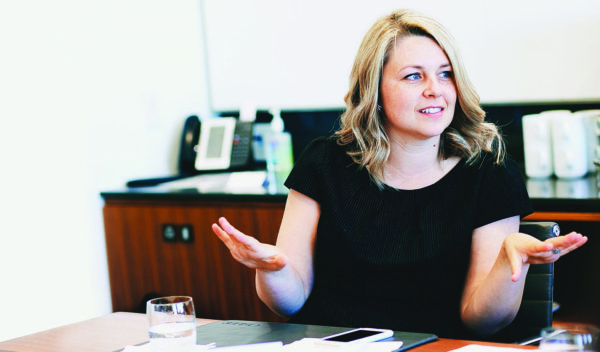

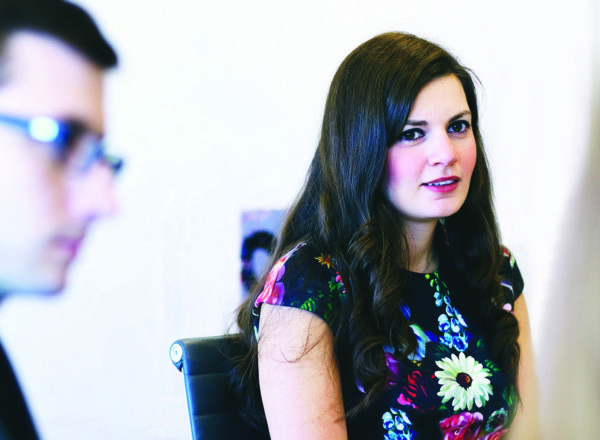
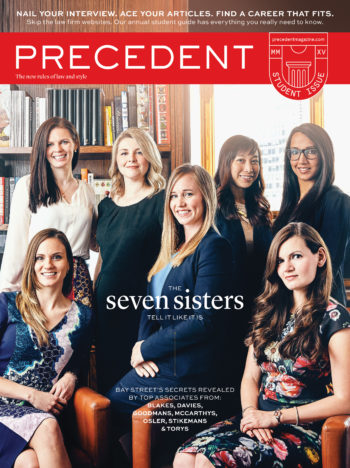
This story is from the 2015 edition of PrecedentJD Magazine
Shot on location at the Cambridge Club in Toronto
Photography by Nick Wong
Hair and makeup by Shelbie Vermette-Grant
